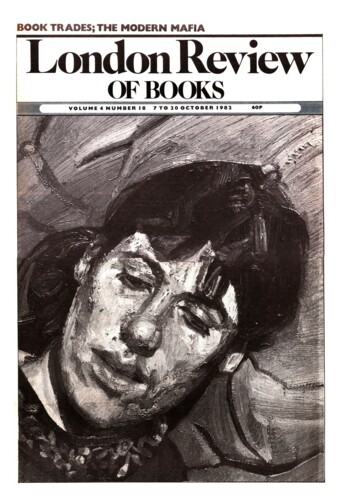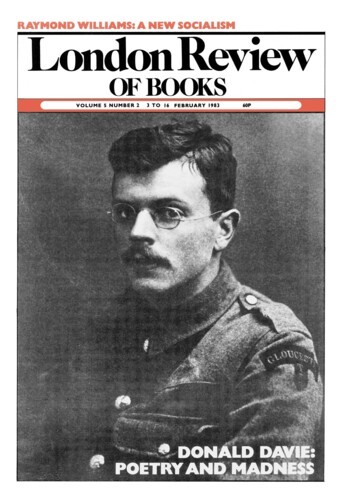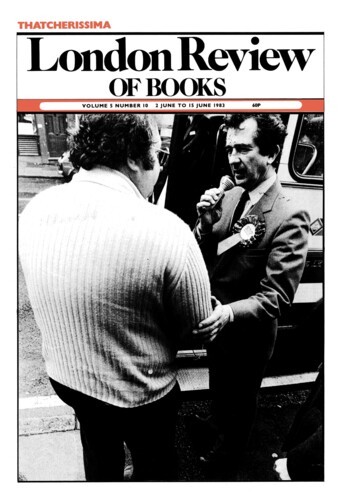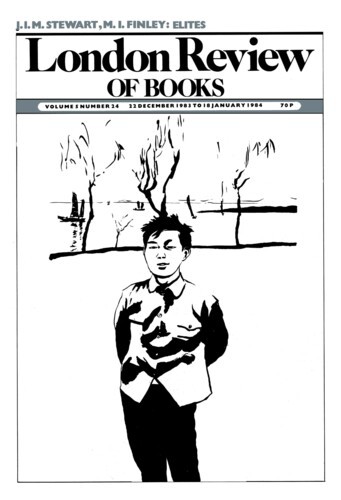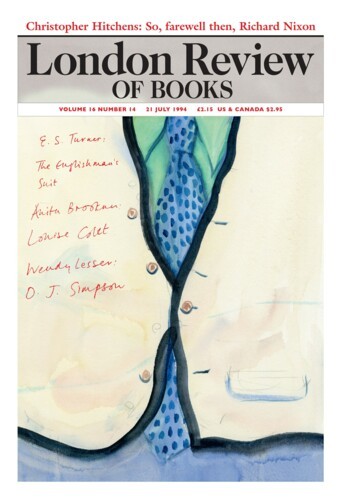Passion
Anita Brookner, 7 October 1982
The President’s Child works, effortlessly, on many levels. First, it is a political thriller. Isabel Rust, a television producer and former hack reporter, once had an affair with a man who is supposedly being groomed as Democratic candidate for the Presidency of the United States. Her apparently spotless marriage was hastily contrived by her to provide a home for herself and the child of that previous union. On the surface, all is middle-class respectability in Camden Town. But as news coverage of the Primaries increases, people begin to notice the resemblance between Isabel’s son and his real father: Isabel herself is seen by the candidate’s campaign managers as a potential menace, and various moves, entirely credible, are made to dispose of her.
